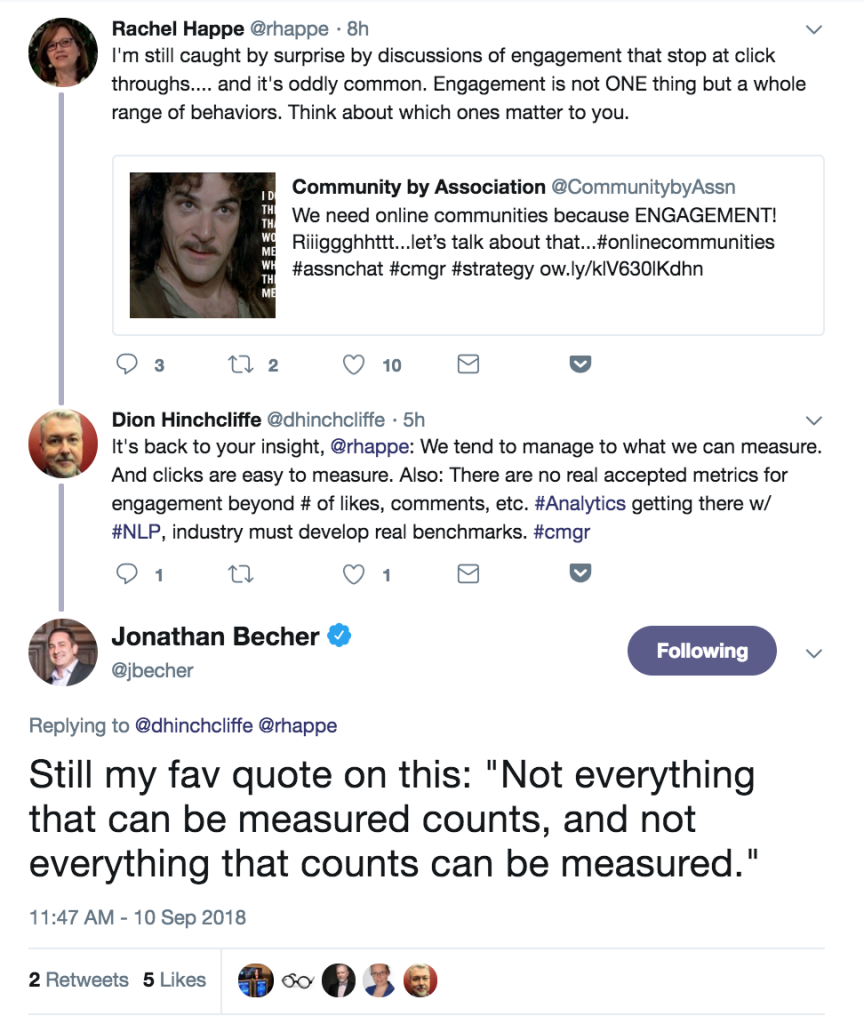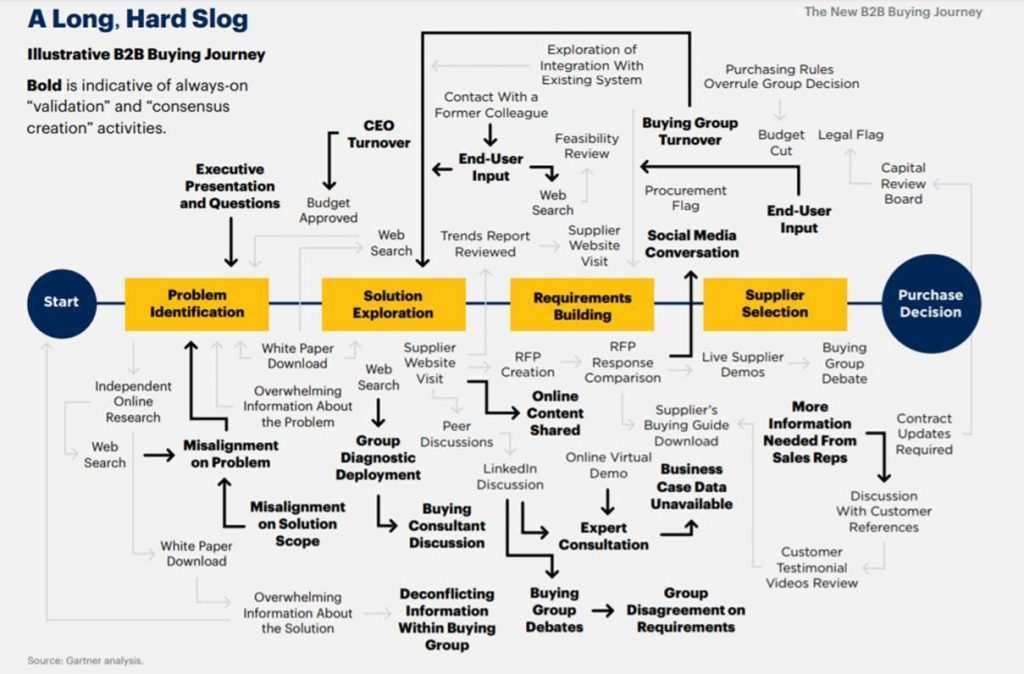Is your software investment/community/engagement strategy going to drive revenue? That’s a very important question, so let’s treat it that way.
Here’s a conversation going on between some of the most influential thinkers in the world today about how business is changing.
Consider this question with two things in mind: buying committees and non-linear “customer journeys,” where prospective customers don’t just avoid straight lines, they don’t event spend most of their time thinking about a company with that company. They spend most of their time talking about or reading about that company with other people entirely.
Gartner says that only 20-30% of IT investments have a *direct* business impact. The other 70-80% have an *indirect* impact – and that’s often where the *biggest* impact is made.
Superior strategy, since at least the days of the Roman empire, takes into account strategic sequences of events, not simply single cause-and-effect moves on the chessboard.
(Below, a great Gartner graphic via Bob Apollo via Gartner’s Hank Barnes.)
Nexus causality is a concept that says almost everything is caused not by one single thing, but by a whole nexus of contributing factors, many of which may be necessary but not sufficient. This is hard for the human mind to comprehend, so we tend to look for a single factor to attribute all causality to. The factor we feel like we might have the most control over – often feels like the convenient one to point to.
Asking whether something will have a direct and immediate business impact is not the right question. Asking whether something is a strong leading indicator of success, whether there’s high or increasingly high correlation between a thing and success, those are better questions. Asking whether a thing can provide substantial competitive differentiation, and then basic competence can take care of the last mile, that’s an interesting question.

